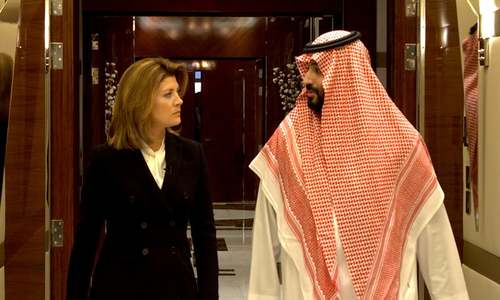President Tayyip Erdogan insisted on Monday that Turkey will keep pushing for the truth behind the killing of journalist Jamal Khashoggi at the Saudi consulate in Istanbul last year, saying some of his killers appeared to be evading justice.
A year after Khashoggi was killed by Saudi agents sent from Riyadh, Erdogan said Turkey still wanted to know where his body was and who had authorised the operation — suggesting it was carried by agents of a "shadow state" in Saudi Arabia.
In a Washington Post op-ed, published on Monday, Erdogan described the journalist's killing by a Saudi hit squad as "arguably the most influential and controversial incident of the 21st Century". His comments come ahead of the first anniversary of Khashoggi's October 2 slaying at the Saudi Consulate in Istanbul.
Khashoggi murder: What we know about the Saudi suspects
Erdogan said Turkey would keep asking: "Where are Khashoggi's remains? Who signed the Saudi journalist's death warrant? Who dispatched the 15 killers aboard two planes to Istanbul?"
Saudi Arabia's de facto ruler Crown Prince Mohammed bin Salman said in an interview with United States broadcaster CBS he had "absolutely not" ordered Khashoggi's killing, although he bore responsibility as leader of his country.
Eleven Saudi suspects have been put on trial in secretive proceedings but only a few hearings have been held. A United Nations report has called for Prince Mohammed and other senior Saudi officials to be investigated. The CIA and some Western governments have said they believe the prince ordered the operation, an assertion Saudi officials have repeatedly denied.
Khashoggi, a Saudi journalist and Washington Post columnist, had become a prominent critic of the crown prince's policies.
He was last seen entering the Saudi consulate in Istanbul on October 2, where he was to receive papers ahead of his wedding. His body was dismembered and removed from the building, according to Turkish officials, and his remains have not been found.
Erdogan, in his op-ed for the Post, said the fact that the killers travelled on diplomatic passports and "turned a diplomatic building into a crime scene" set a dangerous precedent.
"Perhaps more dangerous is the impunity that some of the killers seem to enjoy back in the kingdom," he wrote, adding that there was a near-complete lack of transparency on the court proceedings.
Erdogan said Turkey continued to see Saudi Arabia as a friend and ally, but that did not mean Ankara would remain silent.
"The 15-member assassination squad that murdered Khashoggi inside Saudi Arabia's consulate in Istanbul and chopped his body into pieces served the interests of a shadow state within the kingdom's government," Erdogan said, without elaborating.















































